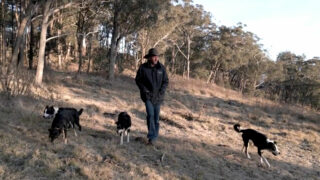In December 2020, high profile research professor, Brene Brown, interviewed President Barack Obama.
The interview explores the power of leaning into uncertainty, and why the rare skill of holding the tension of opposites makes us better leaders, partners, and parents.
Here are the 5 big insights we walked away with.
1. Working with Polarities
Understanding and working with polarities effectively is a critical leadership skill. It’s a topic that appears in Gestalt Psychotherapy, Adult Development Theory and Systems Thinking. Put very simply, it deals with our tendency as human beings to put issues at one end of a spectrum or the other: for example Good vs Evil or Dark vs Light. When you work with polarities in coaching, you often discover that it releases new choices – ones that you haven’t considered before. Including polarities inside yourself about your own capabilities.
President Barack Obama talks explicitly in this interview about how this integrating mindset and perspective has informed all his leadership and life. As he describes it, it is the “both / and approach”. As Brene reflects back to him:
“People who can hold the discomfort of paradox are truly the most transformative leaders among us… that is a very rare skill set because it requires a level of comfort with ambiguity. I feel like your life is defined by this skill set of holding the tension of duality.”
In thinking about the way you personally as a leader are able to hold the tension around opposites you might reflect on how you approach tough conversations. This is a place where the pressures we’re under can lead us to getting caught in polarising ‘either/or’ thinking and therefore closing off choices for ourselves and others. (For more on this, see our Case Study article on a compassionate approach to tough conversations).
(Just as a side note, this commitment to being able to not only hold the tension of paradox but to extend our ability in this domain is one of the reasons we are such fans of the leadership profiling tools from Lumina Learning. For more on these tools check out the link or ask us for more info.)
2. Transforming your Imposter Syndrome
Even though Obama doesn’t explicitly name Imposter Syndrome in the interview, he adds a beautiful extra bit of insightfulness about this important experience that many leaders find pulls them up. Listen out for how he talks about the idea that if you’re too sure of yourself, you might not truly listen and remain curious about alternatives. If this is something that is haunting you, remember these are the gifts of what the imposter syndrome is trying to give you – humility and open-minded curiosity. They are very precious. For more on this, check out these tips.
3. Creating Generative Teams
Having a good team is critical. As Obama says “you don’t know everything, and it’s very valuable as a leader to realize you better have a good team around you, because you’re going to be wrong a bunch and you’ll need people who don’t mind calling you on it.”
But having people who can call you on your blind spots is just part of the point of a team. The other part is the ability to have rigorous debate. This is one of the critical outputs of our Systemic Team Coaching work at Leadership Space. Obama captures it beautifully:
“My interest in rigorous debate; making sure that we have looked at every problem from every angle is not because I think that you can actually come up with a perfect answer, but it’s that by engaging in that exercise, you can at least eliminate bad answers, you can at least have some humility around what outcomes you should expect. You can guard against some outcomes that are less than optimal, you can hedge your bets a little bit, and so at the end of the day, you can make better decisions, even though you know they’re not going to be perfect.”
4. Doing your first 90 days right
Obama says that the best leadership advice he ever got was in relation to how to start a new role. As a firm that specialises in helping do their first 90 days right, we just loved the way he put this:
“Spend the first month going around and just listening to people. Instead of telling people what they should care about, listen to what they do care about.”
In our model we call this first step “CONNECT” and we couldn’t have put it better!
5. Trust, Resilience and Optimism
There’s some powerful and touching comments in this interview about the critical aspects of leadership, trust, resilience, and optimism… which have extra poignancy as we sit in an ever-extending lockdown in Sydney, and increasingly around Australia. As Brene quotes:
“You must never confuse faith that you will prevail in the end, which you can never afford to lose, with the discipline of confronting the most brutal facts of your current reality, whatever they may be.”
For leaders whose organisations are struggling, take note of the message that trust in you comes from people seeing that you can handle the bad stuff. For yourself, remember that resilience will come from knowing that the path towards progress comes with going forwards and backwards many times over. And for those that feel deeply, know that really feeling and knowing the impact of bad things, means that your faith that you will prevail, when it comes, comes from a far deeper place.
As we reflect on this important conversation between two deep thinking leaders, perhaps the message to take away for this moment in time, is this:
“Just because something doesn’t have a perfect answer doesn’t mean it doesn’t have a better answer.”
Happy listening! We’d love to know what you took away from it.
Brené with President Barack Obama on Leadership, Family and Service







